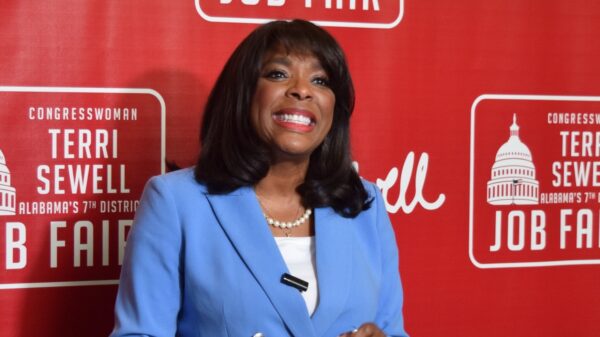Last week, the Poarch Band of Creek Indians laid out its starting point for any negotiations concerning a lottery and gambling legislation.
Arthur Mothershed, who’s in charge of the tribe’s business development for gaming operations, spelled out PCI’s base plan, which included hefty licensing fees for other casino locations, new casinos in Birmingham and northeast Alabama, a 25-percent tax rate and class III gaming at Poarch Creek facilities.
But there’s another side in this debate, as we’ve all just learned in the ongoing lottery fiasco. The owners of three of the state’s four dog tracks — where pari-mutuel wagering is legal — have a lot of influence when it comes to gaming legislation.
Almost any gaming deal, barring a slick political maneuver that neither side seems capable of pulling off, would have to receive the blessing of both sides.
With that being the case, it’s important to lay out the track owners’ initial offer, too. So we can put the two side by side and see where things stand.
The problem, though, is that there isn’t really a unified proposal from the owners of GreeneTrack, CEO Nat Winn, and VictoryLand, the family of Milton McGregor, who also own the Birmingham Race Course. That’s primarily because the two sides have, for so long, dealt with most gaming issues individually.
There is some communication, and the two owners are friendly, but Alabama’s unique laws have left each fighting for survival on their own.
Take this legislative session, for example. After the death of a bill sponsored by Jim McClendon, the tracks were left to fend for themselves through the introduction of local constitutional amendments. Both of them failed, but they did so independently of each other.
In the meantime, an amendment to protect gambling in Birmingham was successfully attached to the lottery bill that survived until this past week.
With all of that said, after listening to the track owners for years now, taking in their wishes that they’ve put on paper, and the wishes that they’ve shared with lawmakers, I feel pretty comfortable in saying that the perfect proposal for them — as it was for the Poarch Creeks — is contained mostly in an old bill. A lottery bill pushed by Del Marsh in 2015.
That bill would have created a state lottery, with all the bells and whistles, that would have created a lottery commission to operate it and would have allowed the state’s four dog tracks to operate full casinos.
That’s not what the tracks want now, however.
Instead, they likely would back a proposal that implemented a lottery and allowed the four tracks to operate video lottery terminals — not full casino gaming. There would be no license fees or fourth location in northeast Alabama for the Poarch Creeks in the deal, and the tax rate would be 14 percent — 13 for the state and 1 percent for the local counties.
PCI would, by default, gain a fourth casino, since it currently owns a majority stake in Mobile Greyhound Park. However, PCI has generally viewed an expansion of gaming in Mobile as a negative, since it would likely drive business away from its largest casino in Atmore.
The Marsh bill also authorized the governor to begin negotiations with the Poarch Creeks for a compact, and that would certainly happen if this proposal passed. PCI would be forced to seek a compact to implement VLTs.
Judging by the outcomes in other states, PCI would clearly be able to operate VLTs, and to do so at a significantly lower “tax rate,” likely around 5 percent. It is also possible that it could push for full class III gaming, and it could use its acquired lands in North Alabama to build a new casino without the state’s approval. But those moves would have to be accomplished in a sort-of hostile fashion, with the tribe using the protection of the federal government to get things done. In other words, a less-than-ideal approach that would be costly and somewhat precarious.
Like with the PCI proposal last week, this one is obviously weighted in favor of the tracks. There are significant differences in the two plans. Most notably, the lack of license fees and the Birmingham casino arrangement look to be the biggest issues. The tax rates are a close third.
But those issues can be resolved, if the two sides are willing to compromise. And they should be. Because there is a mountain of money on the table for both. A lot more than what PCI is currently making in the state — for both sides. And somewhere between $500 million and $700 million annually for Alabama.





















































